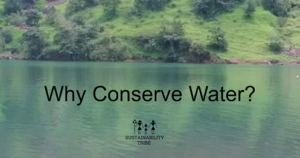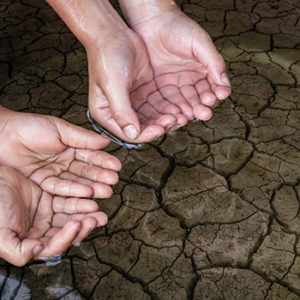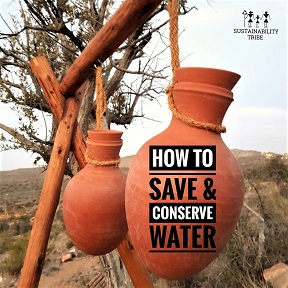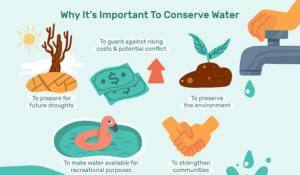Tribe, one of the most common misconceptions about water is why we need to conserve water on our blue planet when 71% of Earth’s surface is covered by water?

Water is finite
So let bust this myth, we need to understand first that water is finite and not an infinite natural resource. Plus the world population is increasing so the demand for fresh, potable water is constantly increasing. Out of all the water is available on the Earth only 3% water is fresh water and 97% is saltwater. 2.5% of fresh water is locked up in glaciers, polar ice caps, soil, and groundwater. Only 5% sweet water is available for us to use. This supply is continuously collected, purified, and distributed in the natural hydrologic (water) cycle. Read more water facts here.
Water and Sanitation Crisis
We have already been facing the global water crisis. Around 844 million people don’t have access to basic drinking water. 1.1 billion people worldwide lack access to clean water, and a total of 2.7 billion find water scarce for at least one month of the year. Some 2.3 billion people live without access to basic sanitation.

The water crisis and sanitation crisis lead to many different social crises. For example, women in water-scarce areas are affected most as they are responsible for water collection. Lack of water and sanitation forces women into a vicious cycle of poverty and poor health. Women and girls spend 200 million hours a day collecting water and 266 million hours a day finding a place to go.
Water crisis leads to health crisis too. around 1 million people die each year due to water, sanitation, and hygiene-related diseases. Children too are affected by the water crisis, which leads to a lack of education. If children have access to clean water and sanitation, they can use their time for education, play and will have a bright future.
Water and Climate Change
Weather and water have a very close connection. Climate change is mainly felt through water evaporation and the precipitation cycle. Every year we are observing the increasing intensity of droughts, floods, melting glaciers, sea-level rise, and storms in the different parts of the world.
The World Economic Forum ranked water crises as number one in its 2015 assessment of global risks. By 2050, at least 1 in 4 people will likely live in a country affected by fresh-water shortages. 700 million people worldwide could be displaced by intense water scarcity by 2030. If we don’t achieve water security then it will also threaten food security and political stability around the world.
Conserving Water also helps…
Conserving water will also help in solving many different world problems. Let’s see how water conservation contributes positively.
Environment and Wildlife
Water is important for the survival of animal life and aquatic life. Many species extract nutrients from the water and it nourishes them. Water bodies like wetlands are also breeding grounds for many species. Conserving natural water bodies and managing the water system will help in the conservation of biodiversity in the ecosystem as well as endangered species.

Food security
Water is key to food security. We need water to grow crops and cattle. Without a regular water supply, we can’t achieve food security. As the population of the world is increasing, food security becomes an even more concerning topic. To reduce the world hunger problem of the present and future, we need to conserve water and intensify water management systems around the world.

Conserving Energy
Conserving water also translates into conserving energy. Water is pumped and distributed in cities or in villages well water is pumped. Water and wastewater networks use many types of equipment and a significant amount of energy is used to run this equipment. So saving water can also save energy.
However, in places like the UAE, where potable water is manufactured from seawater by energy-intense processes like water desalination, there is even higher energy invested in producing, distributing water, and then collecting and processing wastewater. Therefore, in such places, it is even more important to conserve water to reduce energy consumption.
Keeping costs down
Lack of water conservation leads to water scarcity which will reflect in rising costs of products, reduced food supply, and health hazards, which can trigger political conflict and unrest in societies. So water conservation also can help in keeping peace and creating healthy and stable communities.

Water conservation and water management require planning and efforts. However, each one of us can contribute to solving the water crisis. Remember, every drop counts? Read our article where simple water-saving tips are discussed, which will help you to save water from today!
Join our ‘Water’ Ambassador program, it’s a reward-based free educational program, where you take water challenges and complete them one by one to become our ‘Water Ambassador’!

